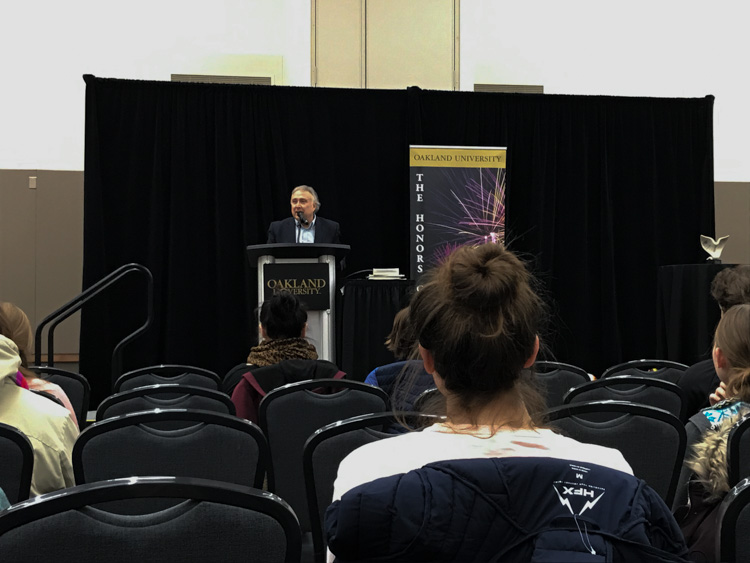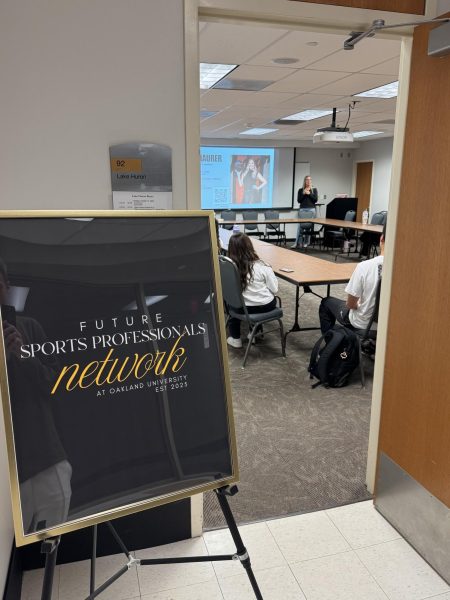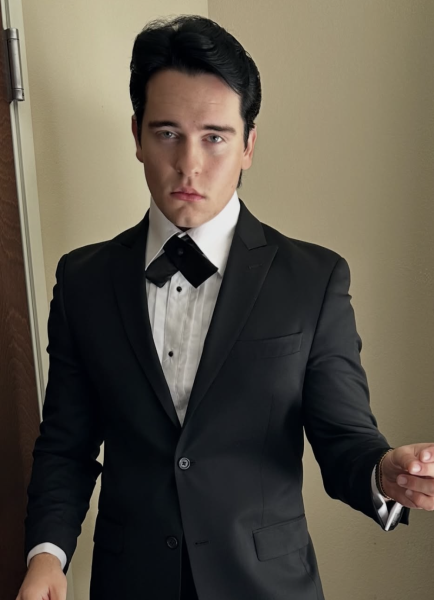Author of ‘Have Dog, Will Travel’ visits campus
Author Stephen Kuusisto discusses his memoir “Have Dog, Will Travel” and his experiences with his guide dogs.
A man with his guide dog visited Oakland University on Tuesday, Feb. 4 to share his extraordinary life stories with faculty and students.
Stephen Kuusisto, author of “Have Dog, Will Travel,” is a blind American poet and writer. To share his life experience with his guide dogs and provide advice to the members of the Future Leader Dog Club at OU and people with interest, he presented a speech.
The evening started with an introduction led by the dean of the Honors College, Dr. Graeme Harper, to welcome Kuusisto, presenting the Humanitarian Award, along with a short presentation from Ann Fuelle, the president of the Future Leader Dog Club.
During his one-hour speech, Kuusisto shared the prologue of his memoir with the audience, with additional life stories he had faced that were far from normal.
Olivia Laconis, a freshman at OU and a member of the Honors College, shared her feelings after meeting the author of the book, as she had already read it for the HC 1000 class.
“Seeing Kuusisto in person after reading his book was surreal,” Laconis said. “I feel like I know him on such a personal level despite never meeting him before. He is so vulnerable and open in ‘Have Dog, Will Travel,’ and this rawness made me connect deeply with him while I was reading his book. I greatly enjoyed his visit to Oakland, and I’m grateful that I was given the opportunity to meet him.”
“Have Dog, Will Travel” is a vivid and lyrical memoir in which Kuusisto recounts how an incredible partnership with a guide dog and wondrous adventures with it changed his life — a so-called “a keen affection between the dog and him, a mutual discernment.”
As a man with blindness since birth, Kuusisto said his early life was full of disaster and obstacles. He said blindness was perceived as a disease in his childhood.
“Disability has long been defined in terms of illness,” Kuusisto said. “This medical model tends to overlook the very real attributional barriers in our society that are the driving force behind people with physical impairments in reality.”
To overcome the difficulties he was faced with, the first step he took was to accept his blindness and get a guide dog at the age of 38. In his memoir, rather than describing blindness as an extraordinary or mythical experience, he described it as an everyday discovery.
“Listening to Kuusisto’s speech really made me realize that ‘Have Dog, Will Travel’ isn’t just a story, it is his life,” Laconis said. “I think it’s easy for people to read a memoir like his and treat it like a story, but the truth is that there is a person behind it who lived it. I think it’s important to treat everyone with respect and kindness because you don’t know what they’re going through.”
Though accepting one’s own disability and overcoming it can be a challenge for many people with disabilities, Kuusisto said he hopes to inspire others in the blind community to get courage and have confidence in their life to tell their own stories.
“I believe that the lives of blind men and women are steep and often brilliant,” Kuusisto said.





